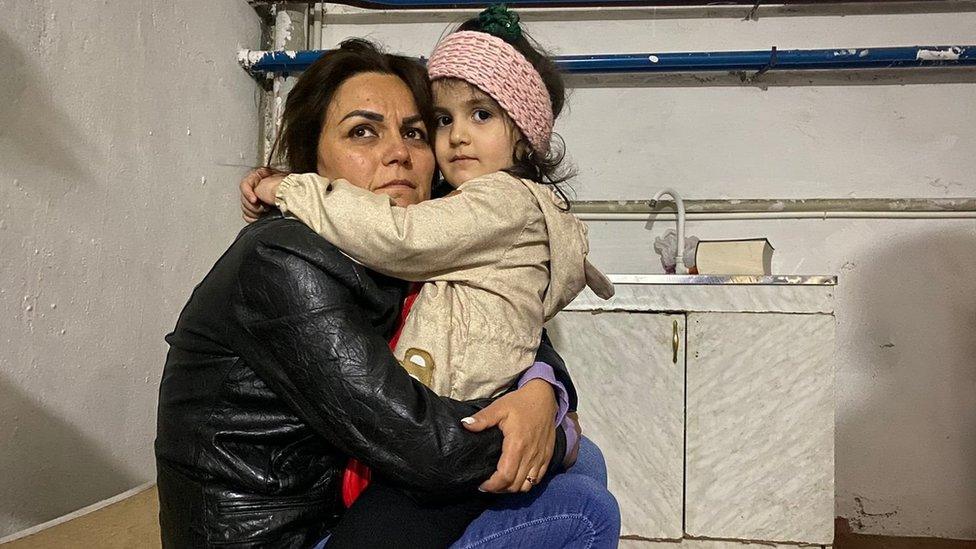'They bombed everywhere': Survivors recount Karabakh attack
- Published
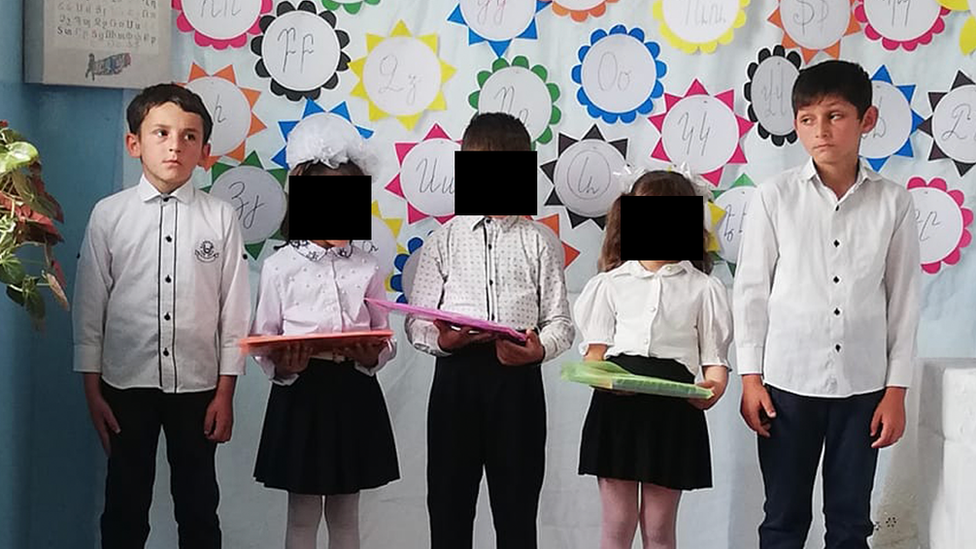
Mikayel and Nver are on the far right and far left of this photo, taken by a schoolteacher
The BBC has been given eyewitness accounts of a bombing incident in a remote village in Nagorno-Karabakh that killed three children and two elderly people. Azerbaijan insists it only focused on "legitimate military targets", but the BBC has spoken to one mother who lost two young sons and had another seriously injured, in what survivors describe as an "indiscriminate attack".
Sarnaghbuyr (called Aghbulag by Azerbaijan) is a village in the Askeran region of Nagorno-Karabakh. It is surrounded by forest and far from any significant military targets.
Zarine Ghazaryan was in the nearby town of Askeran when the attack started on 19 September. She was trying to find baby formula to feed her youngest son, Karen. Nine months of living under a de facto blockade had meant shortages of food, fuel and heating.
Hearing explosions, she tried to return home but says she was stopped by heavy incoming fire.
She was told her son Seyran had been badly wounded and taken to hospital in the main city, called Khankendi in Azerbaijan but known to ethnic Armenians as Stepanakert. Her three other children were being evacuated by Russian peacekeepers. But when she reached the hospital she heard the bombs had killed two of her sons: Eight-year-old Mikayel and Nver, who was 10.
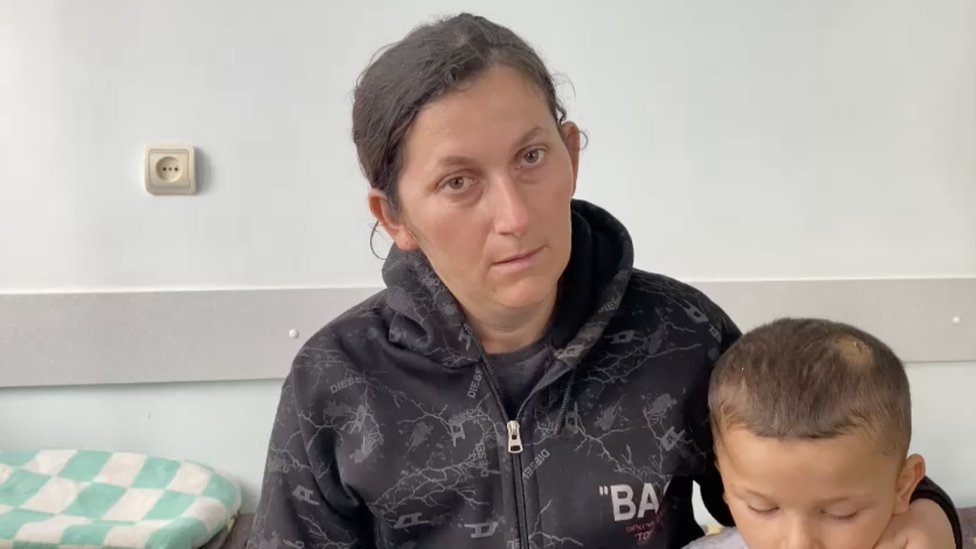
Zarine Ghazaryan with her son Karen
We spoke to her at the hospital. She says she was allowed to see the bodies of her two sons, who had extensive head injuries. "I have seen them, they are in a horrific state.' she said. "It is horrible, I just want their father to come."
Arman, a 15-year-old boy from the village, was with the children when they came under heavy fire. We spoke to him as he was being treated for wounds on his back, shoulders and hands.
"They started bombing everywhere. Some people got killed, some were wounded, I saw some people who had had their heads blown off. It was horrendous." he said.
Arman said three shells exploded next to him.
"We huddled the kids together under some trees, to see if we could get them to safety, and that's where they bombed," he said.
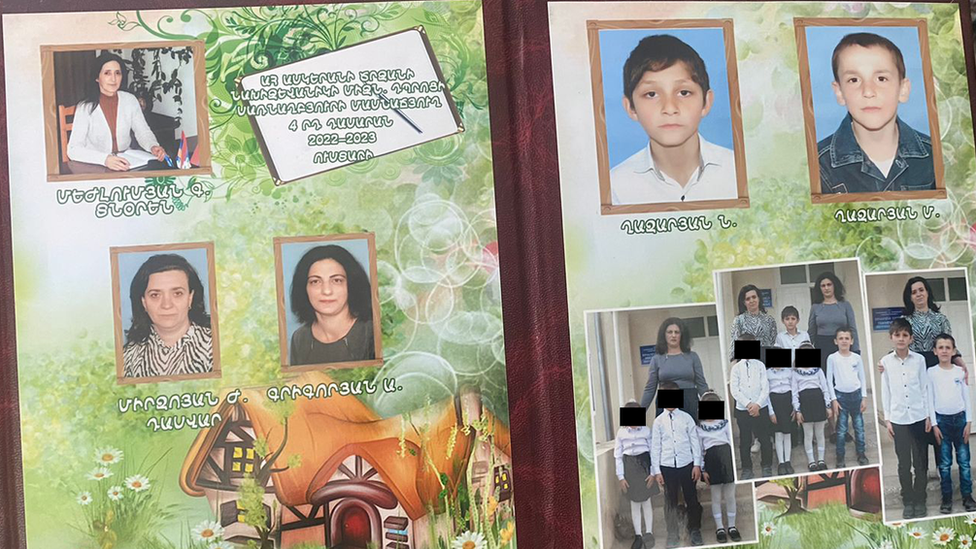
Nver and Mikayel (top right) were killed on 19 September
Local authorities say three other people were killed that day. Garik Alexanyan, the village mayor, lost his son David, father Alexander and mother-in law Gohar. His description of his son's injuries is too graphic to repeat.
According to the authorities, a further 15 villagers were wounded. Many others were forced to leave their homes.
They joined the exodus of thousands of other ethnic Armenians displaced from their homes by the attack. Most tried to reach Stepanakert or were taken by Russian peacekeepers to their base at a local airport. Many were hoping to be airlifted to Armenia, but instead remain stranded on the airstrip.

Zarine wants to take her son's bodies to Armenia for burial, but space on planes out of Karabakh is being used to evacuate the wounded, and the queue to leave by road reaches for dozens of kilometres. So she and her family wait.
The BBC has not been able to independently verify details of the attack.
Ambassador Elchin Amirbekov, a special envoy of Azerbaijan's president, told the BBC that the Azerbaijani army had orders "to neutralise only legitimate military targets." He said: "It has never been our intention to harm any civilian. It is true that collateral damage happens, and we regret any loss of civilian life."
He completely rejected accusations this attack was carried out deliberately, and said that in the 1990s, hundreds of thousands of Azerbaijanis had been displaced by the Armenian forces and that war crimes had been committed against them.
Additional reporting by Kayleen Devlin
Related topics
- Published26 September 2023
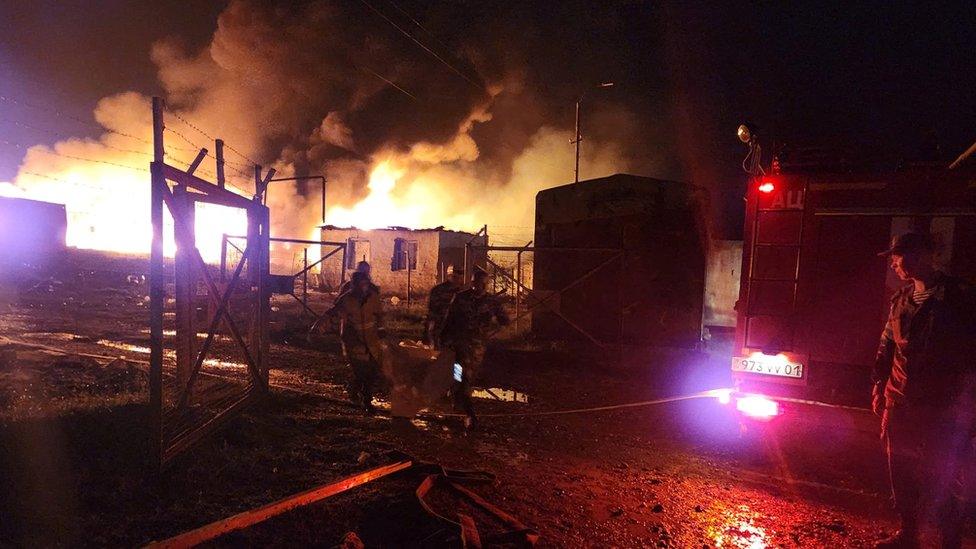
- Published23 September 2023
